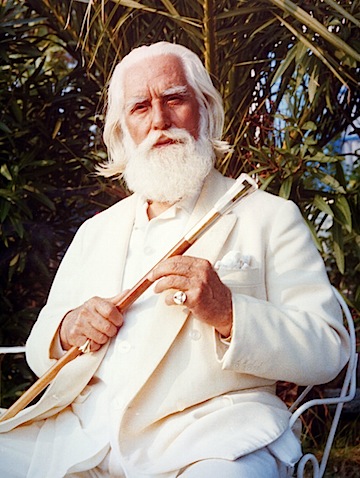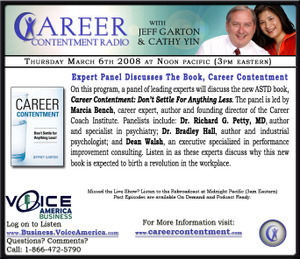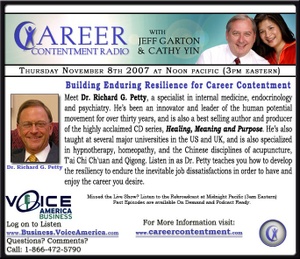A Candle or a Fire?

“When you light a candle, the slightest breeze can extinguish its tiny flame. But if you light a brazier, the most violent winds will only fuel it.
And what about you? If you are only a tiny flame, the slightest breeze will blow you out. But if you are a brazier, the stronger the wind blows, the stronger your fire will grow.
Yes, if you are small, frail and sickly, if you are not yet strong, the slightest challenge can flatten you. But if you are sturdy and resilient, all difficulties will only increase your dynamism, your willpower and your love.
How often we have seen this! When the weak are the slightest bit contradicted or challenged, they become discouraged, give up and give in, while the strong are inspired and become even more determined to carry on and brave all obstacles.
Well now, don’t ask me which of these you are. You can find this out for yourself: if the least difficulty in life brings you to a halt, you are still only a candle flame.”
–Omraam Mikhaël Aïvanhov (Bulgarian Spiritual Master, 1900-1986)
Career Contentment

I am very happy to report that my friend Jeff Garton’s new book – Career Contentment: Don’t Settle for Anything Less – has just come out.
As you will see from my review, I just love the book, and it is amazing how Jeff’s work and mine fit together.
We are going to be having a panel discussion about the book on www.Business.VoiceAmerica.com on Thursday March 6th at 3PM Eastern, which is noon Pacific time. The discussion is also going to be archived for people in other time zones. I plan to put up a link as soon as it is available.
There is a nice press release here.
I hope that you can listen in: I think that you will get a lot of food for thought!
“Contentment is natural wealth, luxury is artificial poverty.”
-Socrates (Greek Philosopher, 469-388 B.C.E.)
Work, Stress, Vacations and Exotic Drinks with Little Umbrellas in Them

Your humble reporter has often spoken about his brush with burnout.
Even though I was a recognized expert on stress – and a former meditation teacher, no less! – I got perilously close to the edge. Fortunately someone noticed and I was packed off on vacation. It was remarkable that just a week in the Caribbean followed by an unforgettable one-week retreat in the Catskills was enough to cure me. My resting pulse rate fell from 68 to 48, where it stayed for more than a year, and I never again had any symptoms. The key point was that the short break was enough to interrupt the downward spiral and provoke the cognitive shift that prevented me from ever again making the mistakes that lead to the trouble in the first place.
I still work hard, but trust me when I say that working 16-17 hours a day, seven days a week is preposterous. Neglecting your emotional health and social life is bad enough. But the last straw was to stop engaging in spiritual practices that I had followed since childhood.
For a long time now I have been teaching that most people can make phenomenal changes in a very short period. It may take you a long time to prepare, but once you are ready change can be extremely quick. If you think about it, the actual physical business of an egg and a sperm joining to make a new life takes less than a minute. But the preparation for the event may take half a lifetime. At least I hope for your sake that it takes a lot longer than a minute…
And that’s all that I am going to say about that…
I was thinking about all this the other day when a stressed executive was telling me that he all he wanted was to spend six months sitting on a beach. In fact that would probably be a thoroughly bad idea.
It is not the time; it is the quality of the time, and the energy that you bring to it.
I cannot stress enough that for most people energy management is far more important than time management.
When it comes to beating burnout, the kind of vacation is likely more important than its length.
A summary of ten years of research by a team lead by Dov Eden, an organizational psychologist from Tel Aviv University’s Faculty of Management, was presented at last year’s meeting of “Work, Stress and Health” in Miami. The event is sponsored by the American Psychological Association and what Professor Eden had to say really supports what we have been talking about.
For the past ten years the team has been studying “respite effects,” which measure relief from chronic job stress during and after vacations away from the workplace. They have also been looking at the impact of constant contact: the revolution in telecommunications has kept some people permanently wired into the office while they are supposed to be away putting their feet up and drinking exotic concoctions with little umbrellas in them. So we are losing true “respite relief,” and that in turn is a cause of chronic job stress.
One recent study involved 800 professors from eight Universities in Israel, the United States, and New Zealand. The researchers measured stress levels before, during, and after a sabbatical leave of a semester or a whole year. They compared them with people who stayed home, and others who just took a long weekend or a one-week vacation. They found that those who took a long sabbatical break experienced about the same amount of stress relief as people who had taken either a week off or just a long weekend or long-weekend vacation. And all three groups returned to pre-sabbatical stress levels in about the same amount of time: approximately three weeks.
Some of Eden’s other studies have indicated that people who best succeed in uncoupling from work and detaching form its demands, get the most benefit from their vacations and they probably less likely to experience job burnout. It’s the ones who cannot detach from the constant flow of job-related demands that are most likely to suffer from burnout.
The key to a refreshing vacation is to create as much space as possible between you and your work life. I once knew someone who spent a week on Tioman Island in the South China Sea. It is reputed to be one of the most beautiful places on earth, which was one of the reasons why it was selected for the filming of South Pacific. For the whole week she spent all day every day working, and every day the hotel’s fax machine got jammed with the 60-70 pages that she sent out. That is not a recipe for a refreshing, life affirming vacation.
This body of research confirms what most sensible managers have worked out for themselves. When someone goes on vacation they should leave their cell phones behind and not check their email. People who feel attached to the office 24/7 are setting themselves up for long-term stress-related illnesses.
I get a lot more email and phone calls than most normal mortals, yet many years ago I made a remarkable discovery.
I had been out of contact for a week, and even after disposing of the spam and junk mail, there were still well over a thousand messages “demanding” my immediate attention. But during that week away, events had moved on, most no longer needed any input from me at all. Matters had been resolved and solutions found. We lost no business, and I have it on good authority that the earth did not fall into the sun.
I came back rested and restored, and firing on all cylinders: everyone benefited.
Quite obviously it is not a good idea to be completely un-obtainable. I have had two friends, one of whom lost her mother and another his wife, and neither heard the sad news for more than a week. So even when I am in some far flung part of the planet I make sure that there is a way for me to be contacted, But only three people know how.
And I am no longer an electron junkie.
Try it the next time that you have a chance. It really is easier than you think.
“Let all bitterness, and wrath, and anger, and clamor, and evil speaking, be put away from you, with all malice; and be ye kind to one another, tenderhearted, forgiving one another, even as God, for Christ’s sake, hath forgiven you.”
–The Bible, Ephesians 4:31-32
“Detach yourself from all that makes your mind restless. Renounce all that disturbs its peace. If you want peace, deserve it.”
–Sri Nisargadatta Maharaj (Indian Spiritual Teacher and Exponent of Jnana Yoga and Advaita Doctrine, 1897-1981)
“You must have been warned against letting the golden hours slip by, but some of them are golden only because we have let then slip by.”
–Sir James Matthew (J.M.) Barrie (Scottish Writer and Playwright, 1860-1937)
The Looming Crisis of Alzheimer’s

For those of us who lobby for resources, it is no overstatement to say that Alzheimer’s disease has reached crisis proportions in the United States.
As we are getting older, the incidence, prevalence and mortality of Alzheimer’s disease are all rising.
The 2007 Alzheimer’s Disease Facts and Figures report by the Alzheimer’s Association makes sobering reading. Here are some of the headline facts:
- Alzheimer’s disease is the most common cause of dementia
- At the present rate, one in 85 people will have the disease in 40 years
- There are now more than 5 million people suffering from Alzheimer’s disease, and the report projects an increase of 16 million cases by 2050 unless preventive measures are taken and/or science is able to come up with a prevention or cure
- One person is now diagnosed with dementia every seven seconds
- One in every four American families is affected by dementia
- The incidence of dementia is one in 1,000 before age 65 and one in 20 after age 65.
- More than $100 billion is spent per year on dementia, which is about 10 percent of all healthcare expenditures
As we have discussed before, the symptoms of dementia may be delayed for 3 to 5 years through healthy lifestyles and behavior modification, and there are many new treatment approaches in the pipeline.
The huge issue is that statistic about one in four families being affected by the disease. And it is a disease: it is not part of normal aging.
Caregivers can suffer terribly.
The Alzheimer’s Association also has some information for those who care for people with Alzheimer’s.
There is also some food information here concerning caregiver stress.
I would also like to direct you to some of the things that I have written here about the wellness of caregivers.
And for everyone, don’t wait until you are thirsty before you dig that well. Work on building you personal resilience and follow the simple lifestyle guidelines that may significantly reduce your risk of developing Alzheimer’s disease.
Career Contentment Radio

Later today I have the privilege of speaking to Jeff Garton and Cathy Yin on Career Contentment Radio, which is broadcast by Business Voice America.
We are going to be talking about one of my favorite topics: Building Resilience.
This program goes out live at Noon Pacific, which is 3PM Eastern, and is rebroadcast at Midnight Pacific time. It will then be available on demand and podcast ready.
I have already sent out e-card invitations with the links to people on my list. If you did not get one, please let me know.
Later today I shall also be posting a report on “Building Resilience” on my main website with more free resources for you to use.
Optimism and the Brain

Humans have a wonderful ability to expect positive events in the future, even when there is no shred of evidence to support them. One of the key components of resilience is optimism. Though there is data to show that there is a genetic contribution to optimism, it is also a psychological attribute that can flow from life experiences as well as attitude that can be developed. Though the motivational coaches who tell us that putting on a happy face will make you happy and optimistic are probably overstating the truth! A lack of optimism is often a sign of clinical depression so learning more about it, is not just an academic exercise.
New research just published in the journal Nature indicates that there are two regions of the brain linked to optimism.
The team from New York University and University College, London, says that the act of imagining a positive future event, for example winning an award or receiving a large sum of money, activates two brain areas: the amygdala and the rostral anterior cingulated cortex (rACC). The finding ties in with earlier studies that suggested that these brain regions malfunction in depression. (1,2)
The investigators first measured how optimistic 15 volunteers were using a standard questionnaire. They were then scanned using functional magnetic resonance imaging (fMRI) while reflecting on one of a number of potential scenarios.
In one part of the trial, subjects followed specific instructions to recall a negative event in the past, such a funeral that they had attended in the past five years. In another experiment they had to imagine what it would be like to be involved in a car crash in the near future. At other points in the study subjects had to reflect on positive events such as winning an award in the past or receiving a large sum of money in the future.
Reflecting on both past and future events activated the amygdala and the rACC regions of the brain. However, positive events, and particularly those imagined in the future, generated a significantly larger response in these regions than reflecting on negative events.
When imagining happy events, the more pessimistic subjects in the trial had less activation of these brain areas than their optimistic counterparts when imagining happy events.
For some time now, many researchers have assumed that the amygdala and rACC are only involved in negative thoughts and negative reactions, but this research indicates that they have an important role in signaling cheerful thoughts. And, what is more, these are also regions of the brain that have been implicated in depression. Previous research has suggested that patients with depression have decreased nerve signaling and fewer cells in the rACC and amygdala.
Is this why people with depression find it so hard to generate positive thoughts?
This is important work that will likely have a great many practical applications.
“Children are born optimists and we slowly educate them out of their heresy.”
–Louise Imogen Guiney (American-born English Poet, 1861-1920)
“Although the world is full of suffering, it is full also of the overcoming of it.”
–Helen Keller (American Blind and Deaf Swedenborgian Philosopher, 1880-1968)
“No man is so old as not to think he can live one year more.”
–Marcus Tullius Cicero (Roman Political Figure and Orator, c.106-43 B.C.E.)
“The way to become happy
Is to think
And to feel
That the very best is yet to come.”
–Sri Chinmoy (a.k.a. Chinmoy Kumar Ghose, Indian Philosopher and Spiritual Teacher, 1931-2007)
Broccoli and Skin Cancer

This one is going to launch a thousand gags on the late night talk shows, but it is actually quite serious.
Despite what you hear on some of those infomercials, there is a strong link between ultraviolet radiation (UVR) and many kinds of skin cancer. You can even use ultraviolet radiation to induce cancerous change in cells cultures in a Petri dish.
In an article from Johns Hopkins University published in the Proceedings of the National Academy of Sciences damaging effects of UVR can be significantly reduced by the topical application of a broccoli extract called sulforaphane that comes from broccoli sprouts. Sulforaphane was first identified over 15 years ago, and it has been shown to play a role in preventing the development of several types of tumors that can be induced by cancer-causing chemicals. It may also have a role
in fighting some established tumors.

The research involved both animal and human studies, and showed that the level of erythema (skin reddening) caused by UVR is substantially reduced when this extract is applied to the skin.
The broccoli extract is not acting like a sunscreen; it does not absorb the UVR, neither does it stop it from entering the skin. Instead it enters the cells and switches on the production of several enzymes that protect cells from UV damage. The result is that the protective effect is sustained for days after the extract has been removed.
The advantage of this is that it is much longer-lasting than any sunscreen – several days, in fact. The scientists said the protection is still there when no extract is present on/in the skin.
The researchers first tested sulforaphane on mouse models of skin cancer, and then on six healthy human volunteers.
Each of the volunteers had small patch of skin exposed to a pulse of UVR. Some of the patches were treated with the broccoli extract while others were not.
At the highest UVR dosages, UVR-induced redness and inflammation was on average 37% lower when the extract had been applied, and the protection was sustained for at least three days. They also found that protection varied greatly depending on the person – protection ranged from 8% to 78%.
These variation may be due to the volunteers’ different skin types, dietary habits and genetic differences.
In these trials, the conventional sunscreens did not provide significant protection.
This research is important for several reasons:
- The research re-emphasizes the importance of recognizing inter-individual differences. An approach that works for one person may not help another
- There are many times in life when we cannot do much to prevent something bad happening to us: radiation, stress or somebody being mean. The new approach s not just to prevent exposure, but also to work on resilience: how can we stop ourselves from having a bad reaction? The whole of us, from our cells to our soul?
- It is inevitable that people will start telling you that broccoli is the way to protect yourself against skin cancer, and I am just waiting for the advertisements to start coming in. Do not be fooled! This research involves a specific extract applied to a precise area of skin. As far as we know, it does not apply to eating broccoli
Overcoming Rejection

I am sure that most of us have faced some form of rejection at some time or other in our lives. People with high self-esteem seem better able to take rejection in their stride, but usually only if it is “earned.” Simply trying artificially to build your self-esteem rather than having built it on a platform of past achievement, will probably not work very well.
New research in the journal Psychological Science from UC Berkeley indicates that this does not mean that people with low self-esteem are doomed to respond defensively to criticism and rejection. The key seems to be that people who are better at controlling their impulses are less vulnerable to rejection.
There were 38 female and 29 male participants in the study. The first completed the Rosenberg self-esteem scale, one of the most widely used self-esteem measure in the social sciences. They then completed a questionnaire on their ability to focus on tasks at hand without distraction. The subjects were arranged into two groups – low self-esteem and normal-to-high self-esteem – based on their scores on the Rosenberg scale.
Each of the volunteers then viewed images showing positive, neutral, negative and rejection themes while being subjected to sporadic loud noises. A startle probe measured the force of their eye-blinks in response to the abrupt sounds. Eye blinks are a good measure of the startle response and correlate fairly well with the activation of the “fight or flight” reaction.
As anticipated, all the participants blinked more strongly when the loud noise was paired to such negative images as dead animals or mutilated bodies. However, the people with low self-esteem blinked more forcefully in response to pictures portraying themes of rejection loneliness and alienation. Paintings with negative themes or acceptance themes, such as lovers embracing, did not elicit the same response in low self-esteem people.
In other words the powerful was in which rejection activates the threat system in people with low self-esteem suggests that their fear of rejection runs extremely deep and engages neurological systems involved in reacting to a threat.
On the other hand, those with low self-esteem who scored higher for attention control, which included the ability to focus, were able to modulate their immediate reactions to rejection.
Some previous work has suggested that self-esteem is part of a primitive emotional warning system that warns us if we are in danger of being socially excluded. While the evolutionary function of this detection system was originally intended to motivate people to stay socially connected, the constant anticipation of rejection can create problems, with the system being triggered by the merest whiff of rejection. They may become hypersensitive and have a brain that generates a cascade of defensive reactions if they sense any kind of disapproval.
Although this is a small study, the evidence is that rather than teaching self-esteem skills, the solution for them might be to improve their abilities to focus, concentrate and regulate their internal states.
In other words develop some specific forms of self-control and resilience.
For many people this may be the most effective way of helping them to cope with disappointment and maintain close relationships.
“No man is free who is not master of himself.”
–Epictetus (Phrygian-born Greek Stoic Philosopher, c.A.D.55- c.A.D.135
“It is not the mountain we conquer but ourselves.”
–Sir Edmund Hillary (New Zealand Mountaineer and Explorer, 1919-
“Mind control is not one’s birthright. The successful few owe their success to their perseverance.”
–Ramana Maharshi (Indian Hindu Mystic and Spiritual Teacher, 1879-1950
“The cyclone derives its powers from a calm center. So does a person.”
–Norman Vincent Peale (American Cleric, Writer and Self-Help Expert, 1898-1993)
Evaluating Sense of Coherence

Yesterday we began to look at Aaron Antonovsky’s concept of Sense of Coherence.
Here is one of the most widely used sets of questions to determine an individual’s Sense of Coherence, derived from Antonovsky’s The Sense of Coherence Quest.
The questions concern a number of aspects of our lives.
Each question has seven possible answers. The person doing the evaluation marks one number from 1 to 7 for whichever one most closely corresponds to their beliefs or feelings.
1. When you talk to people, do you have the feeling that they don’t understand you?
Never 1 2 3 4 5 6 7 Always have this feeling
2 In the past, when you had to do something that depended upon cooperation with others, did you have the feeling that it:
Surely wouldn’t get done 1 2 3 4 5 6 7 Surely would get done
3. Think of the people with whom you come into contact daily, aside from the ones to whom you feel closest. How well do you know most of them?
You feel that they’re strangers 1 2 3 4 5 6 7 You know them very well
4. Do have the feeling that you don’t really care about what goes on around you?
Very seldom or never 1 2 3 4 5 6 7 Very often
5. Have you in the past ever been surprised by the behavior of people whom you thought you knew well?
Never happened 1 2 3 4 5 6 7 Always happened
6. Have you ever had people that you counted on, ended up disappointing you?
Never happened 1 2 3 4 5 6 7 Always happened
7. Life is:
Full of interest 1 2 3 4 5 6 7 Completely routine
8. Until now your life has had:
No clear goals or purpose at all 1 2 3 4 5 6 7 Very clear goals and purpose
9. Do you have the feeling that you’re being treated unfairly?
Very often 1 2 3 4 5 6 7 Very seldom or never
10. In the past ten years your life has been:
Full of changes without your knowing what will happen next 1 2 3 4 5 6 7 Completely consistent and clear
11. Most of the things you do in the future will probably be:
Completely fascinating 1 2 3 4 5 6 7 Deadly boring
12. Do you have the feeling that you are in an unfamiliar situation and don’t know what to do?
Very often 1 2 3 4 5 6 7 Very seldom or never
13. What best describes how you see life:
One can always find a solution to painful things in life 1 2 3 4 5 6 7 There is no solution to painful things in life
14. When you think about your life, you very often:
Feel how good it is to be alive 1 2 3 4 5 6 7 Ask yourself why you exist at all
15. When you face a difficult problem, the choice of a solution is:
Always confusing and hard to find 1 2 3 4 5 6 7 Always completely clear
16. Doing the things you do every day is:
A source of deep pleasure and satisfaction 1 2 3 4 5 6 7 A source of pain and boredom
17. Your life in the future will probably be:
Full of changes without your knowing what will happen next 1 2 3 4 5 6 7 Completely consistent and clear
18. When something unpleasant happened in the past your tendency was:
“To beat yourself up” about it 1 2 3 4 5 6 7 to say, “Ok that’s that, I have to live with it ” and go on
19. Do you have very mixed-up feelings and ideas?
Very often 1 2 3 4 5 6 7 Very seldom or never
20. When you do something that gives you a good feeling:
It’s certain that you’ll go on feeling good 1 2 3 4 5 6 7 It’s certain that something will happen to spoil the feeling
21. Does you have feelings inside you would rather not feel?
Very often 1 2 3 4 5 6 7 Very seldom or never
22. You anticipate that your personal life in the future will be:
Totally without meaning or purpose 1 2 3 4 5 6 7 Full of meaning and purpose
23. Do you think that there will always be people whom you’ll be able to count on in the future?
You’re certain there will be 1 2 3 4 5 6 7 You doubt there will be
24. Does it happen that you have the feeling that you don’t know exactly what’s about to happen?
Very often 1 2 3 4 5 6 7 Very seldom or never
25. Many people – even those with a strong character – sometimes feel like sad sacks (losers) in certain situations. How often have you felt this way in the past?
Never 1 2 3 4 5 6 7 Very often
26. When something happened, have you generally found that:
You overestimated or underestimated its importance 1 2 3 4 5 6 7 You saw things in the right proportion
27. When you think of the difficulties you are likely to face in important aspects of your life, do you have the feeling that:
You will always succeed in overcoming the difficulties 1 2 3 4 5 6 7 You won’t succeed in overcoming the difficulties
28. How often do you have the feeling that there’s little meaning in the things you do in your daily life?
Very often 1 2 3 4 5 6 7 Very seldom or never
29. How often do you have feelings that you’re not sure you can keep under control?
Very often 1 2 3 4 5 6 7 Very seldom or never
There are no right or wrong answers, but the overall pattern of your scores will give you some useful insights. There is a large research literature in which scores on this scale have been related to everything from career choices to the risk of getting PTSD.
A Sense of Coherence

One of the central concepts of Integrated Health and Integrated Medicine is the idea of coherence. This is not a new idea, but was developed in new ways and formalized by the American/Israeli sociologist Aaron Antonovsky. It is such an important concept that I have mentioned something about it before
Antonovsky developed his theory of health and illness, which he termed Salutogenesis. This model was described in his 1979 book “Health, Stress and Coping”, followed by “Unraveling the Mystery of Health”
in 1987. I remember its publication, and the strong feeling amongst many of us interested in Integrated Health that it was a most important
contribution to understanding the relationship between health and
illness. A key concept in Antonovsky’s salutogenic theory concerns the way in which
specific personal dispositions serve to make us more resilient
to the stressors that we encounter in daily life.
Antonovsky identified
these characteristics, which he said helped a person better cope and remain healthy by providing “a sense of coherence” (SOC) about
life and the challenges we all face. Measures of Sense of Coherence have
been developed and tested in more than 30 countries.
The SOC is defined as: “The extent to which one has a pervasive, enduring though dynamic, feeling of confidence that one’s environment is predictable and that things will work out as well as can reasonably be expected.”
So it tries to capture our sense of optimism and control.
SOC has three components:
- Comprehensibility
- Manageability
- Meaningfulness
Comprehensibility is the extent to which events are perceived as making logical sense, that they are ordered, consistent, and structured. Manageability is the extent to which a person feels they can cope. Meaningfulness is how much one feels that life makes sense, and challenges are worthy of commitment.
Professor Antonovsky believed that a person with a strong SOC is more likely to feel less stress and tension, and to have confidence that he or she can meet the demand placed upon them. The SOC was developed to apply across cultures, and versions of the questionnaire have been used in over 30 countries.
The SOC is not the only factor in a predicting outcomes in a person’s life: it interacts with a person’s natural coping style, upbringing, financial assets, mood and social support. The strength and availability of each is a major determinant in the development of a strong or weak SOC.
Research in the growing field of psychoneuroimmunology
has supported many of the basic assertions of the relationship between
emotions and health contained in Antonovsky’s theory of Salutogenesis.
I saw some research (NR691) at the 2007 Annual Meeting of the American Psychiatric Association in San Diego, California last month that was based on a sample of 976 working people in Denmark, found that people with a high sense of coherence perceive less stress and experience less psychological disturbance in the work place.
This all makes very good sense, and it also gives us yet another line of approach for helping people deal with the stresses of life and gain personal mastery.
I shall talk about using this information in the future.






